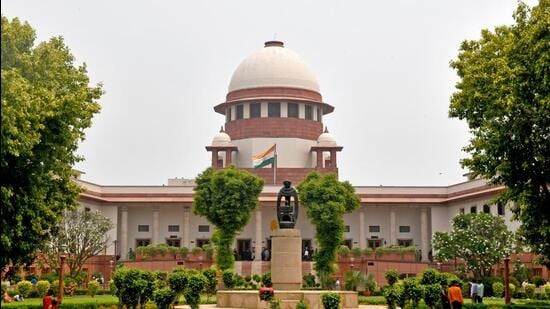Lagatar24 Desk
New Delhi: The Supreme Court on Thursday directed courts across the country to refrain from admitting or passing any new orders on pleas seeking surveys of mosques to determine if temples lie beneath them. This decision extends to existing suits, halting any further orders on the matter.
The directive was issued as the apex court continued hearing petitions challenging the constitutional validity of the Places of Worship (Special Provisions) Act, 1991. This Act prohibits filing lawsuits to reclaim places of worship or alter their character from what existed on August 15, 1947.
Judicial Review of the Act
A bench comprising Chief Justice of India Sanjiv Khanna and Justices PV Sanjay Kumar and KV Vishwanathan stated, “We are examining the vires, contours, and ambit of the 1991 Places of Worship Act.”
The petitions argue that the Act infringes upon the rights of Hindus, Jains, Buddhists, and Sikhs to restore their places of worship and pilgrimage, claiming these sites were destroyed by invaders.
Centre Directed to Respond
The Supreme Court has granted the Centre four weeks to file its reply to the petitions and an additional four weeks for other parties to submit their rejoinders. A hearing will follow upon the completion of pleadings.
Muslim bodies and other interested parties seeking to intervene in the proceedings have been allowed to file their pleas, further broadening the scope of the hearing.
Provisions Under Challenge
The petitions, including one filed by BJP leader Ashwini Upadhyay, challenge Sections 2, 3, and 4 of the 1991 Act, arguing that these provisions:
•Restrict judicial remedies for reclaiming places of worship.
•Impose an arbitrary cut-off date of August 15, 1947, preventing legal action for alleged encroachments.
The Act aims to maintain the religious character of places of worship as they stood at the time of independence, ensuring communal harmony and public order.
What’s Next?
The Supreme Court’s decision to pause survey orders underscores the importance of a nuanced approach to resolving sensitive religious issues. With multiple petitions under review, the case will serve as a significant precedent in interpreting the balance between secularism and religious rights in India.







